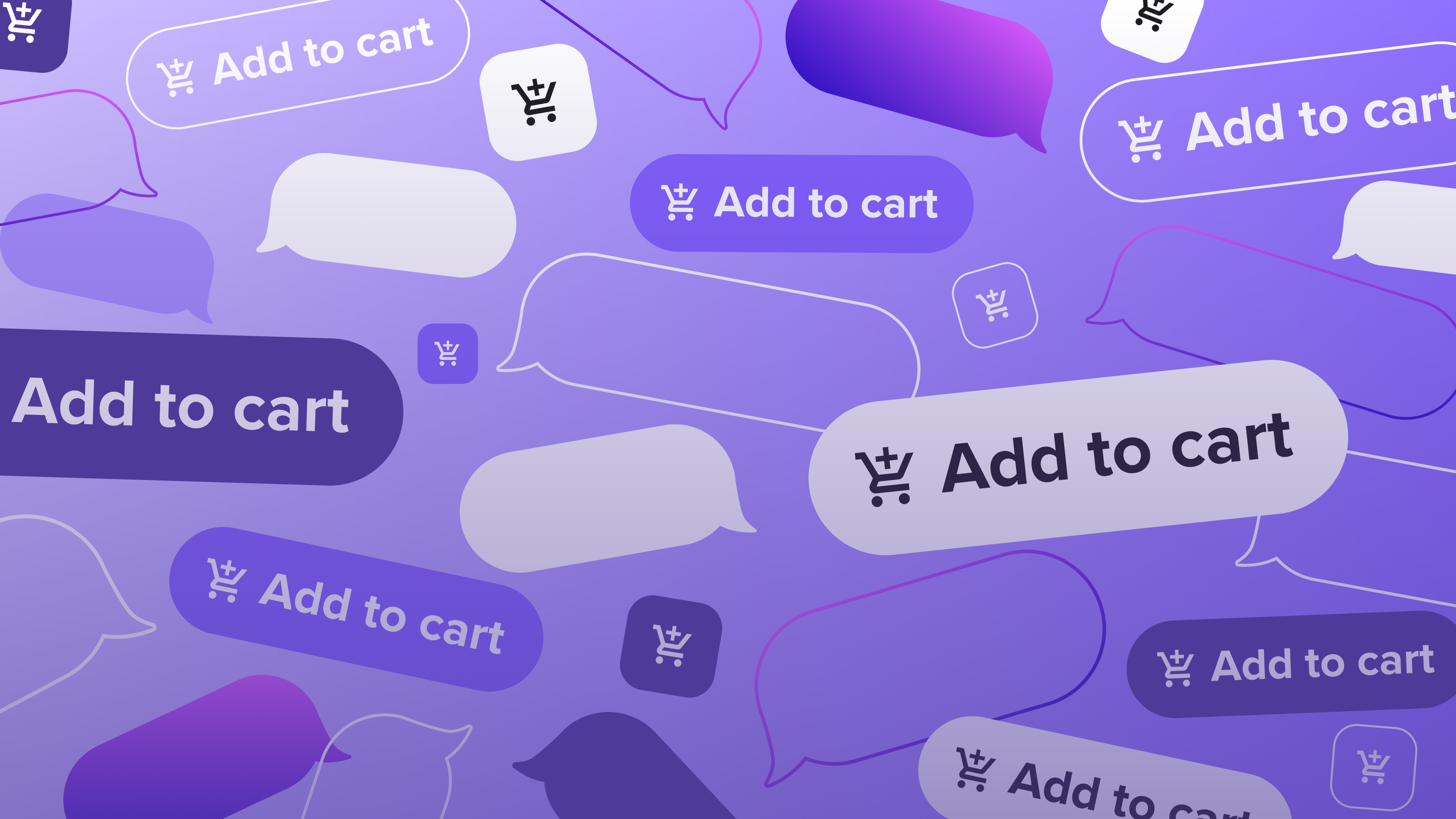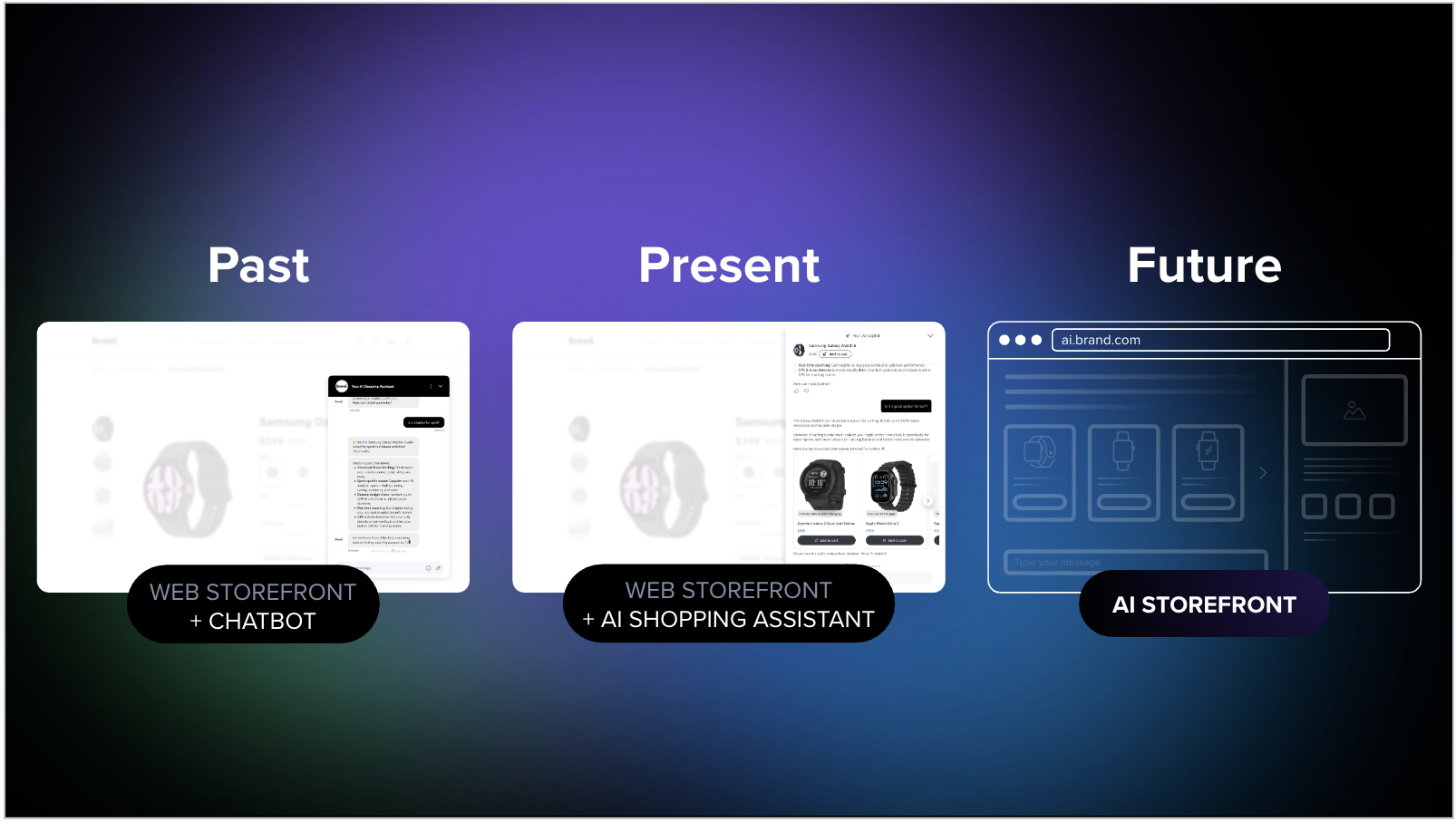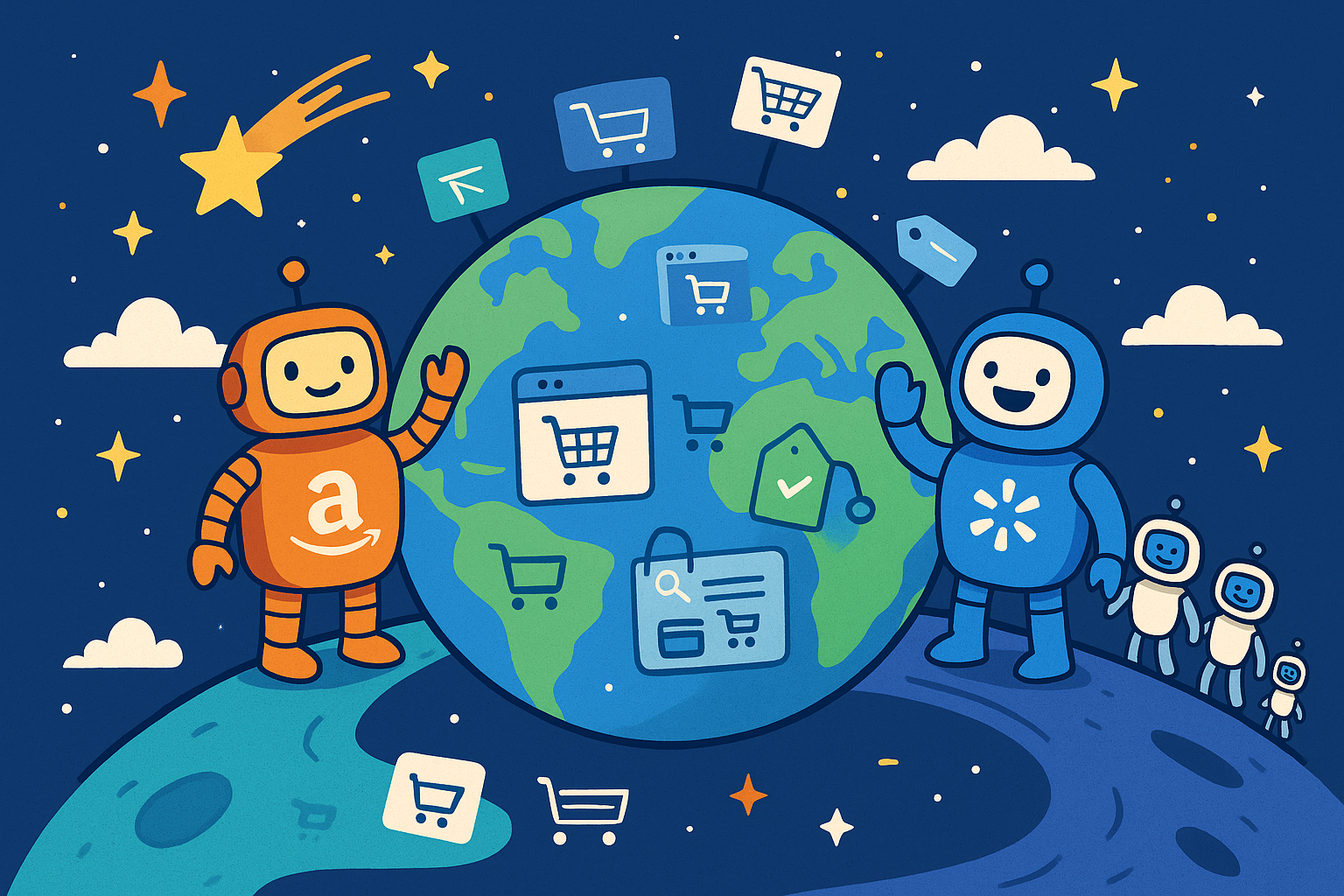Elevating Digital Customer Experiences: The Power of E-commerce Chatbots
iAdvize

The digital transformation of commerce has not only changed the way we shop, but also raised the bar for customer service standards. In the fast-paced e-commerce landscape, businesses face the challenge of providing exceptional customer service 24/7. Traditional customer service channels, while still important, can no longer keep up with the demand for instant, round-the-clock support. This gap between customer expectations and businesses' ability to meet them paved the way for the emergence of e-commerce chatbots.
The Evolution of Customer Service in E-commerce and the Rise of Chatbots
E-commerce chatbots, powered by advancements in artificial intelligence (AI) and natural language processing (NLP), have revolutionized customer service. They offer an innovative solution to the demand for immediate, personalized, and efficient customer support. Unlike human agents, chatbots are available 24/7, can handle multiple customer requests simultaneously, and consistently provide instant, accurate responses that help reduce shopping cart abandonment.
What Are E-commerce Chatbots?
These tools are AI-driven virtual assistants designed to simulate human-like interactions with consumers. They can understand and process natural language, allowing them to engage in meaningful conversations and assist with a wide range of tasks. They can be used on an e-commerce website to answer frequently asked questions (FAQs), provide product recommendations, facilitate transactions, tracking order statuses, and more.
E-commerce chatbots employ a combination of AI, natural language processing (NLP), and machine learning algorithms. This technology enables them to self-train using data provided by the brands that deploy them. As a result, the chatbots learn from each conversation, constantly enhancing their ability to understand and respond more accurately to customer queries over time.
Why E-commerce Brands Need Advanced AI Chatbots
Focusing on enhancing the messaging and live chat experience is paramount for companies with an e-commerce presence looking to increase online conversions. The most effective avenue for doing this is integrating a high-quality AI chatbot that can support company-specific goals.
Businesses can't afford to overlook chatbots because they’re the perfect medium for implementing conversational commerce tactics that can stop a consumer from abandoning their shopping cart. After all, their performance can make or break the sale. When a bot can provide an accurate and helpful response, 65% of shoppers complete their online purchase. When this isn’t the case, 46% of shoppers will abandon their purchase altogether.
- Instant Customer Support: Chatbots provide immediate responses to customer inquiries, significantly reducing wait times in a way that improves customer satisfaction.
- Personalized Shopping Experience: AI chatbots can analyze customer behavior and preferences to offer personalized product recommendations and support, making the shopping experience more engaging.
- Operational Efficiency: The automation of a wide range of routine customer service tasks and responses, like FAQs or product information, is now possible with the artificial intelligence that powers the best e-commerce chatbots today. Doing this will enable your human agents to focus on more complex and high-value interactions with consumers.
Types of E-commerce Chatbots
Understanding the different types of e-commerce chatbots can help businesses choose the right solution for their needs. The three major types include:
- A simple chatbot: This is a rule-based bot that responds to specific commands or questions with predefined answers. It’s ideal for handling basic customer service inquiries.
- An AI-powered chatbot: Equipped with AI and machine learning capabilities, this type of bot can understand natural language, learn from interactions, and provide more sophisticated responses. The advanced generative AI that these chatbots are powered with enables them to reach a level of customer satisfaction that rivals a rating for human customer service support.
- A hybrid chatbot: Combining the best of both worlds, a hybrid chatbot offers AI-driven interactions with the option for customers to escalate complex queries to human agents.
Key Benefits of Implementing E-commerce Chatbots
There’s many pros to integrating chatbots into your online store’s product pages, including that they create a more user-friendly interface and enhance personalization for shoppers. They’re also useful for:
- Increasing Sales: By engaging customers with tailored recommendations and promotional messages, chatbots can show you how to increase average order value (AOV) and boost your conversion rate up to 33%.
- Reducing Cart Abandonment: Chatbots can proactively engage customers showing signs of hesitation, offering assistance or incentives to complete their purchases.
- Improving Customer Loyalty: Providing instant, reliable customer support contributes to a positive shopping experience, fostering customer loyalty and repeat business.
Best Practices for E-commerce Chatbots
To maximize the benefits of e-commerce chatbots, businesses should follow best practices:
- Maintain the Human Touch: While chatbots can handle many customer service tasks, ensuring that customers can easily reach a human agent when needed is crucial for complex issues.
- Keep Your Knowledge Base Updated: Regularly update your chatbot with the latest products, promotions, and policies to provide accurate information to customers.
- Multi-Platform Integration: Deploy your chatbot across various platforms, including your website, social media, and messaging apps, to engage customers wherever they are.
How to Choose the Right E-commerce Chatbot for Your Business
Selecting the perfect solution for your business is akin to choosing a new member for your team. You want someone—or something—that understands your brand's ethos, can engage your customers effectively, and ultimately, drive your business forward. Here's how to make that choice:
- Compatibility: Ensure the chatbot integrates seamlessly with your current e-commerce platform. This integration is crucial for providing accurate product information, inventory updates, and facilitating transactions directly through the chat interface.
- Scalability: Your chosen chatbot should be able to grow with your business. Look for solutions that can handle increasing volumes of interactions without compromising performance. Scalability also means the ability to expand chatbot functionalities as your business needs evolve.
- Features and customization: Identify the key functionalities you need from a chatbot. This could range from basic answers to FAQs to more advanced features like tailored shopping assistance and product discovery, integration with CRM systems, or multilingual support. A good chatbot platform should offer the flexibility to customize these features to match your brand's voice and customer service strategy.
- Costs: While cost should not be the sole determining factor, it's important to consider the pricing model of the chatbot platform. Evaluate the cost against the features offered, and consider the ROI in terms of increased sales, customer satisfaction, and efficiency gains.
- User Experience: The best chatbots provide a smooth, intuitive user experience. They should be able to understand and respond to customer queries accurately and in a conversational manner. Test the chatbot yourself and consider conducting a pilot with a segment of your customers to gather feedback and analytics insights before a full rollout.
- Support and Maintenance: Choose a chatbot platform that offers robust support and maintenance services. This includes technical support for integrating and customizing the chatbot, as well as ongoing updates to ensure the chatbot remains effective as technology and customer expectations evolve.
Real-World Success Stories
The top industries leading the charge in generative AI adoption include consumer electronics, fashion, and sports & outdoors. Let's look at an example from each where brands have successfully harnessed the power of artificial intelligence to improve their conversations with consumers and drive business growth.
Consumer Electronics E-commerce
With over 15,000 product pages, consumer electronics and household appliances business, Vanden Borre, used generative AI to provide 24/7 assistance to users throughout their entire buying journey.
Fashion E-commerce
Fashion retailer, IKKS, implemented an AI chatbot on their product pages to offer personalized outfit recommendations and shopping assistance, ultimately achieving an automation rate of 80%. This has also led to a noticeable increase in conversions for the brand.
Sporting Goods E-commerce
With the advent of advanced generative AI, sports & outdoors retailer, INTERSPORT, wanted to take advantage of this new technology to automate their interactions with each site visitor more effectively.
AI-Powered Shopping Assistance is More Than Just a Trend
AI tools enhance customer service, personalize the shopping experience, and drive sales. As e-commerce continues to evolve, AI chatbots will play an increasingly important role in creating competitive advantages for businesses, and we can already see evidence of this across industries. For e-commerce leaders focused on leveraging technology to improve business outcomes, chatbots represent an opportunity to innovate, satisfy customers, and achieve substantial revenue growth.
By carefully selecting the best ecommerce platform that manages chatbots for your business and following best practices for implementation, any online store can unlock the full potential of this technology. The success stories of brands that have effectively used chatbots serve as inspiration and proof of the transformative power of chatbots for the e-commerce sector.
As we embrace the future of e-commerce, the addition of a chatbot on your website will serve as an indispensable tool for brands looking to increase conversions and provide a frictionless buying journey for their consumers.

.png)
.png)









